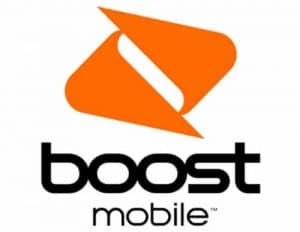 The Justice Department has helped engineer an approvable merger deal between T-Mobile and Sprint that will get antitrust regulators’ blessings as early as tomorrow, according to a report in the Wall Street Journal.
The Justice Department has helped engineer an approvable merger deal between T-Mobile and Sprint that will get antitrust regulators’ blessings as early as tomorrow, according to a report in the Wall Street Journal.
The sticking point that held up merger approval for weeks was the divestiture of certain wireless assets to Dish Network, which claims it will temporarily use Sprint and T-Mobile’s wireless networks to offer a new nationwide “fourth option” for cell phone service. Dish’s new cell phone service will come from a $1.4 billion acquisition of prepaid carrier Boost Mobile, which currently relies on reselling Sprint’s 4G network. Dish would inherit Boost’s nine million customers. Dish will also be able to lease access to T-Mobile and Sprint’s existing wireless networks for up to seven years while it builds out its own network of cell towers. The deal also includes a guarantee that Dish can pay $3.6 billion to acquire 800 MHz wireless licenses held by Sprint.
The Justice Department claims that lower frequency spectrum will allow Dish to service rural communities, assuming Dish is willing to invest in cell tower construction in high cost, low return areas.
 Regulators in the Trump Administration’s Justice Department claim shaving assets from a super-sized T-Mobile will preserve the competition that will be lost when Sprint becomes a part of T-Mobile. But Dish will emerge as a miniscule player with only a fraction of the 100+ million customers that AT&T and Verizon have, and at least 80 million customers signed with T-Mobile. One of the core arguments T-Mobile and Sprint made in favor of their merger was that each was too small to afford to deploy 5G service quickly and efficiently. Dish will have even less money to build out a basic 4G wireless network.
Regulators in the Trump Administration’s Justice Department claim shaving assets from a super-sized T-Mobile will preserve the competition that will be lost when Sprint becomes a part of T-Mobile. But Dish will emerge as a miniscule player with only a fraction of the 100+ million customers that AT&T and Verizon have, and at least 80 million customers signed with T-Mobile. One of the core arguments T-Mobile and Sprint made in favor of their merger was that each was too small to afford to deploy 5G service quickly and efficiently. Dish will have even less money to build out a basic 4G wireless network.
Another merger requirement for the combined T-Mobile and Sprint will be mandatory support for eSIM, which allows consumers to change wireless carriers quickly without investing in a physical SIM card. But that requirement will not impact AT&T or Verizon Wireless, which both continue to push physical SIM cards on the much larger customer bases.
If the Justice Department does publicly approve the merger, the last hurdle the wireless companies will have to overcome is a multi-state lawsuit filed by attorneys general that argue the merger will impact low-income customers and is anti competitive. That court case is unlikely to be heard until late fall at the earliest.
CNBC’s David Faber reports that T-Mobile and Sprint have settled with the Department of Justice to go through with their merger deal. (6:14)


 Subscribe
Subscribe